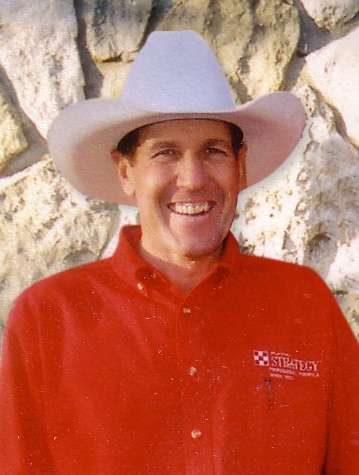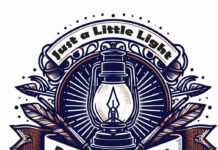Six cowboys have been honored as new inductees into the Kansas Cowboy Hall of Fame at Dodge City
“Each one personifies the cowboy ideals of integrity, honesty and self-sufficiency,” said Lara Crotts, Boot Hill Museum executive director.
“This is so exciting celebrating those who made significant contributions to our western heritage,” said Kim Goodnight, Hall of Fame chairman.
Kathie Bell, curator of the Boot Hill Museum, where inductees are recognized in permanent displays assisted with the ceremonies.
It was an especial evening as both the 2020 and 2021 inductees were presented in the inspirational power point program. Although the previous year’s class received widespread acknowledgement at that time, the coronavirus forced cancelation of a public recognition.
Last year’s inductees: O.E. “Bud” Alexander, Council Grove, rancher/cattleman; Charles “Walter” Couch, Kingsdown, cowboy historian; Keith L. Downer, Garden City, working cowboy; Faye (Peck) Heath, Junction City, rodeo cowgirl; and John E. “Cowboy Jack” Steinmitz, Dodge City, cowboy entertainer.
This year’s honorees were Bill Brewer, Madison, working cowboy; Michael Grauer, Oklahoma City, cowboy historian; Lawrence and Gilbert Krier, Ashland, ranchers/cattlemen; Wendell Tranter, Eskridge, rodeo cowboy; and Dr. R.C. Trotter, Dodge City, cowboy entertainer.
Bill Brewer, Working Cowboy
William Martin Brewer, a former slave, came to Kansas in 1870 driving horses and settled in Greenwood County. Born at Louisville, Kentucky, in 1854, Brewer bore the whip scars from his former masters.
Working for area ranchers, Brewer’s cowboy talents soon were renowned eventually becoming James Bradfield’s foreman. A home was built by Bradfield for Brewer to live in which was quite the opportunity for a black man.
Those reflecting Brewer’s livestock handling ability claimed he could make a team of strong mules behave by talking to them. “He worked cattle with the best, and was never thrown off any bucking horse,” it is said.
In charge of the Bradfield Ranch sheep herd, Brewer had a well-trained dog which could find sheep where ever hidden. Brewer was also remembered as an excellent cook and a top poker player which sometimes helped him pay bills.
A big man, Brewer was known for his fighting ability, often for his own protection, although he never started a fight. At the age of 68, Brewer boxed in an exhibition to raise money for the Olpe School.
Late in life, Brewer was employed by Paul Lamoureaux in Lyon County becoming a devout Catholic upon the family’s encouragement. Dying and buried at Olpe in 1938, “Bill was a true cowboy, always the only black cowboy in an all-white world.”
Michael Grauer, Cowboy Historian
“As soon as I could read, I devoured any book on the American West, cowboys, and American Indians,” Michael Grauer said.
Born at Kansas City in 1961, Grauer of Oklahoma City wanted to be a cowboy on his grandparent’s Marysville farm. By the time he was three, Grauer was horseback on his Shetland pony named Gunsmoke and already learning to rope.
After high school graduation in 1979, Grauer earned painting and advanced art history degrees. He worked at the Smithsonian American Art Museum before becoming curator of Western heritage at the Historical Museum in Canyon, Texas.
In 2018, Grauer became curator of cowboy collections and Western art at the National Cowboy and Western Heritage Museum in Oklahoma City.
Curating more than 150 exhibits and authoring about 65 publications, Grauer has received numerous accolades. He served as adjunct lecturer in Western American Studies at West Texas A&M.
Grauer is president of the Western Cattle Trail Association and vice president of the International Chisholm Trail Association. He’s a director of the Kansas Cowboy Hall of Fame, and the National Drovers Hall of Fame. Serving on the research committee for the National Cowgirl Hall of Fame, Grauer lectures on art, history, and culture across the American West.
Receiving the Best Western Art Book Award in 2020, Grauer also performs a living history cowboy presentation called “Cowboy Mike.”
Lawrence and Gilbert Krier, Ranchers/Cattlemen
Lawrence Krier was born at Atchison in 1900 and married Josephine Fladung at Olpe in 1921. During World War II he moved to Clark County and partnered with Arnold Berends to form Krier Ranch at Ashland.
Lawrence brought bull calves from Arizona and New Mexico and fattened them for market. If the cattle came into Minneola, they were driven through town with dogs chasing them.
Cattle were shipped by rail to Kansas City while owners rode for free in the caboose. In 1948, Lawrence leased the Gabbert Ranch switching from yearlings to a cowherd.
In the 1980s, Lawrence crossbred Herefords with Angus to do away with dehorning and cancer eye. Lawrence died on November 13, 1984.
Born in 1927 at Olpe, son Gilbert continues his father’s legacy. After serving the Marines, Gilbert worked for the Santa Fe Railroad and then attended Kansas State University for a semester. There he met Mary Lincoln who became his wife upon marriage at Emporia in 1949.
In 1952, Gilbert moved his family to the Krier Ranch to assist his father. He also worked for other ranchers and in the oil fields.
During his early ranching career, Gilbert competed in calf roping at local rodeos. Cattle operations expanded with leasing of the LX Ranch in 1960.
Still riding horses when he was 85-years-old, Gilbert continues ranching with two sons.
Wendell Tranter, Rodeo Cowboy
“Whoever wrote ‘Mama don’t let your babies grow up to be cowboys’ sure as heck never met Wendell Tranter,” insisted a Tranter acquaintance.
Born at Eskridge in 1928, Tranter as a youth was readily found on horseback helping Flint Hills ranchers with cattle. Serving in the Army during the Korean War, Tranter married Marlys Cary and they had two children Andie and Tracie.
Returning to Eskridge, Tranter worked as a cowboy while building fence, pens and chutes. Counting cattle off rail cars, Tranter then helped round up and load them back on trains in the fall.
Helping cattle owners throughout the Flint Hills, Tranter looked after cattle personally on 5,000 acres annually. He broke and trained his own horses and trained horses for other ranchers.
Tranter championed in calf roping, team roping and wild cow milking at rodeos. He was instrumental in founding the Eskridge Labor Day Rodeo in the early 1950s with Ed Van Petten and Bob Widau.
With the assistance of Joe and Parker Warren, and Charlie Waugh, Tranter was largely responsible for the arena’s construction. He was honored for more than 50 years’ service to the Eskridge Labor Day Rodeo which continues annually.
In 1980, Tranter became ranch manager for the Kansas division of the Pitchfork Land & Cattle Company. Managing local operations for 30 years, Tranter passed away in 2013.
Dr. R.C. Trotter, Cowboy Entertainer
“It has been my honor and privilege to serve Dodge City, my birthplace, as a member and president of the Dodge City Roundup Committee.”
Roger C. “R.C.” Trotter was born at Dodge City in 1947. He grew up in small towns around Kansas with admiration for livestock. Trotter attended Sterling College playing football and running track, then marrying Mary Creswell in 1969.
Graduating from the Kansas University School of Pharmacy in 1971, Trotter earned his doctor’s degree from the KU Medical School in 1974
Starting his practice at Minneola, Dr. Trotter moved to Dodge City in 1982. Being trained in sports medicine, “Doc” saw the need for a physician at the Dodge City Roundup Rodeo.
Still, Trotter purchased his own admission ticket and “hung out” with emergency technicians he knew from working in the hospital.
Eventually the rodeo committee constructed a medical building behind the grandstands where Trotter served 20 years as a physician. A community leader, Trotter was vice-president of the committee before accepting reins and continuing to serve as president.
Under Trotter’s leadership, the Dodge City Roundup Rodeo has grown in contestant numbers and payback with many arena improvements.
The rodeo has been inducted into the Pro Rodeo Hall of Fame and named the “Best North American Rodeo” by USA Today newspaper. Trotter has also received the Kansas Tourism Association’s Kansas Finest Award.
CUTLINES
Inductees into the Kansas Cowboy Hall of Fame this year include Bill Brewer, working cowboy, and Gilbert and Lawrence Krier, ranchers/cattlemen.
Michael Grauer, cowboy historian; Wendell Tranter, rodeo cowboy; and Dr. R.C. Trotter, cowboy entertainer, have been inducted into the Kansas Cowboy Hall of Fame.





